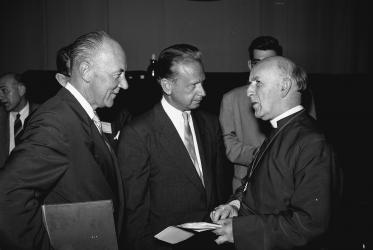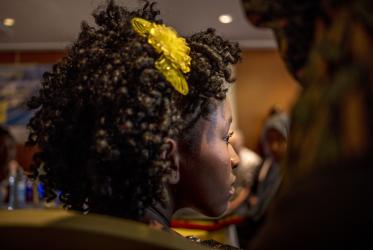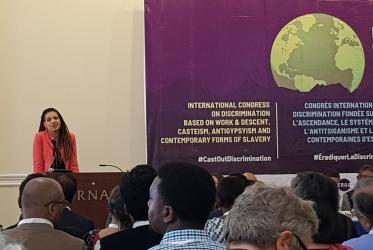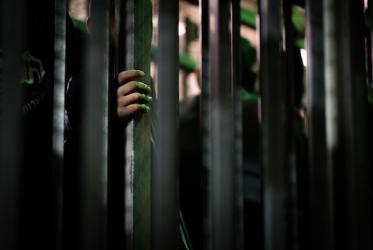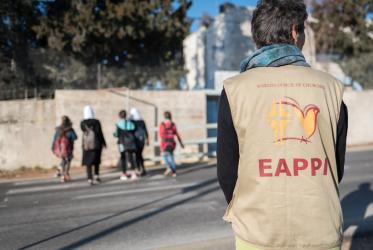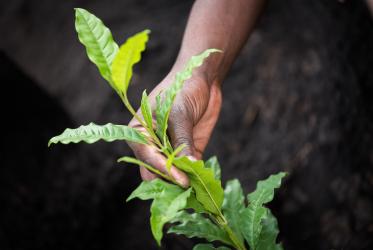Displaying 81 - 100 of 219
South Sudan Church leaders welcome new cabinet
15 March 2020
Freedom of religion rooted in justice
06 March 2020
WCC reiterates standpoints against antisemitism
20 January 2020
On International Human Rights Day, WCC’s work is ever-present
10 December 2019
Dr Saïd Ailabouni: God is on the side of rejected, oppressed, occupied
12 September 2019
Peacemakers at work in Sri Lanka
29 April 2019
Shabbat dinner ‘helps humanize two sides of the story’
27 March 2019
